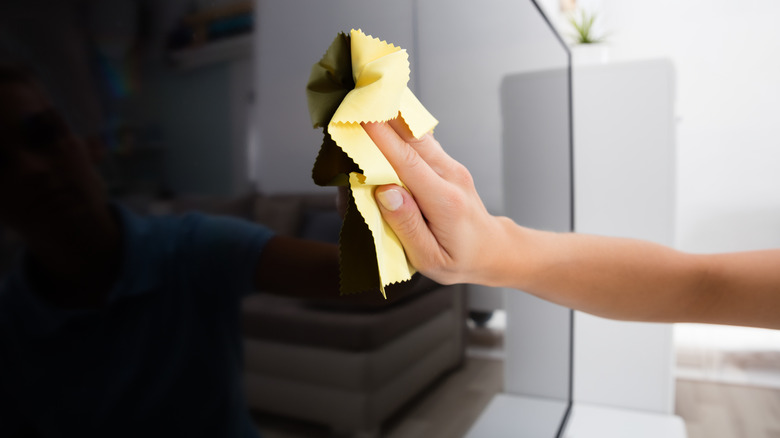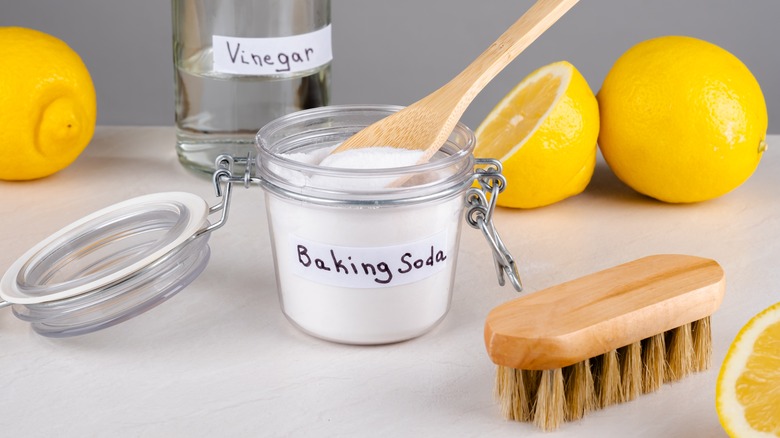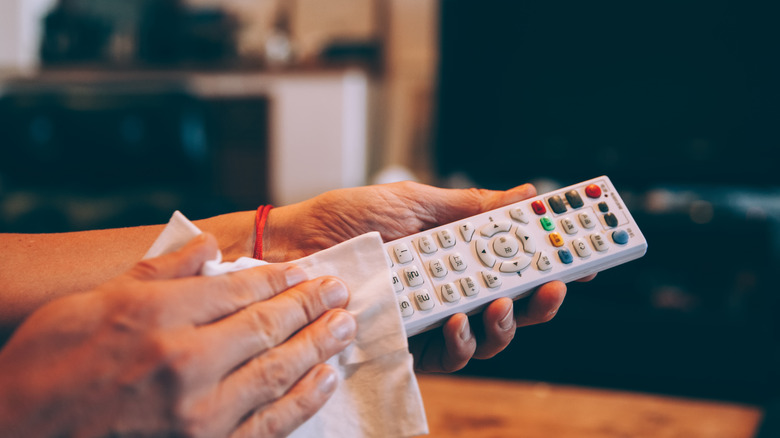Baking Soda Is A Cleaning Staple, But Keep It Away From Electronics
A classic all-natural cleaning favorite, baking soda, or sodium bicarbonate, is one of the most versatile ingredients in a household cleaning arsenal. Whether you mix it with water to make a paste or combine it with vinegar for a grime-busting powerhouse, this chemical compound can handle many tasks, including keeping your pool clean. Yet there's one thing you should never wash with baking soda, and that's your electronics. Using it on gadgets, such as tablets, phones, and televisions, is a quick way to scratch their glass surfaces and damage other components.
Sodium bicarbonate is a crystalline powder, meaning it features a mild abrasive quality. Its harsh nature makes it excellent for scrubbing away filth in the kitchen and bathroom, but it can do some serious damage to your electronics. When you use it to clean your gadgets, the gritty texture of baking soda may wipe fingerprints and debris away, but at a potentially steep cost.
Why you should avoid using baking soda on electronics
You may think that since baking soda can help remove stuck-on sticker residue on jars or containers, it's fine to use for your computer screen or TV. The truth is no, it isn't. Computer monitors and televisions can easily scratch, much like when you clean mirrors with sodium bicarbonate. The same is true of other electronics such as tablets, handheld gaming devices, and smartphones, which all have delicate components.
You don't just run the risk of ruining the screen, either. The fine particles of baking soda can also get into the crevices of your electronics, such as around the edge of the screen or in between controls, potentially causing damage. You may want to clean your devices with an all-natural solution, but sodium bicarbonate isn't a good option. Luckily, there are good alternatives available to help you get your gadgets sparkling again.
What to use to instead
Before you clean your gadgets with anything, unplug the device. Never clean while your monitor, TV, etc., is plugged in. Next, consult your product's manual for any recommendations or warnings for care and maintenance. Most manufacturers will list appropriate cleaning methods either in the handbook or on its official website, so always check before you attempt to clean electronics.
Your best bet for cleaning electronics is grabbing a microfiber cloth, water, isopropyl alcohol, and distilled white vinegar. You can tackle fingerprints on a TV or monitor by spraying the cloth with a 50-50 mixture of vinegar and water, then gently wiping the screen horizontally, then vertically. Avoid both of these solutions for your phone's touchscreen, though, as they can remove the oleophobic coating, a thin application for protection and fingerprint resistance. Instead, use an alcohol-based wipe to gently clean the surface.


